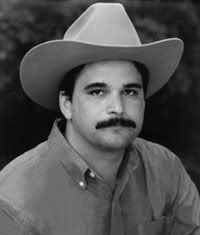This Land Is Ours
This is the statement released today by Richard Pombo (R 11th-CA), chairman of the House Resources Committee.
 While the full breadth of this decision's consequences may not be fully realized for some time, I am sure the Founding Fathers are rolling over in their graves as we approach this Independence Day weekend.
While the full breadth of this decision's consequences may not be fully realized for some time, I am sure the Founding Fathers are rolling over in their graves as we approach this Independence Day weekend.In and as a result of our great struggle to win independence, our forefathers realized that private property - indeed owning the fruits of one's labor - was so inextricably linked to freedom that they sought its protection in the Constitution. Property rights are the heart of individual freedom and the foundation for all other civil rights guaranteed to Americans by that document. Both are designed to protect the weak from the strong. Without the freedom to acquire, possess and defend property, all other guaranteed rights are merely words on a page.
The Fifth Amendment holds that private property shall not be taken by the government for public use without just compensation. These safeguards have been under assault for decades and until now, the typical victims were family farmers and ranchers in the West. The attacks have come not from Red Coats, but from government bureaucrats armed with a voracious appetite for power. Compensation for their overzealous application of environmental regulations and impact statements has come rarely, and rarely is it just.
The Supreme Court's decision to allow local governments to declare eminent domain in this case goes beyond compensation; it wholly perverts the intent of public use, and in so doing, may turn the American dream of home ownership into a nightmare. It has delivered the property rights assault from rural America right to the doorsteps of suburbia.
In New London, Conn. city planners essentially decided that evicting 15 homeowners from their homes was in the 'greater good' as a 'public use' for an office park and new condos. But the public to be directly served in this case was a private corporation. Whether they were newly-wed couples hoping for the promise of long-term appreciation in value or life-long residents who owned their homes outright, the Supreme Court approved this injustice, turned the Constitution on its head, and shattered the American dream of home ownership for families. This was a nightmare for one married couple in particular, who abruptly lost their home of fifty years.
No longer will public use correctly be defined as a road, bridge or hospital, it can be defined as an abstract greater good, such as increased tax revenue or economic development. Private property - the American home - can now be taken at will by government and reallocated to another private entity if it runs afoul of a local bureaucrat's notion of public use and greater good. No longer will the weak be protected from the strong, as these 15 families have learned. This is not what the Founding Fathers envisioned.
James Madison wrote that government is "instituted no less for protection of the property, than of the persons of individuals...The rights of property are committed into the same hands with the personal rights." On this Independence Day, rural and urban private property owners alike should have a lot to think about. If your investment in private property is not protected from the whims of government, how much individual liberty do you really have?


0 Comments:
Post a Comment
<< Home